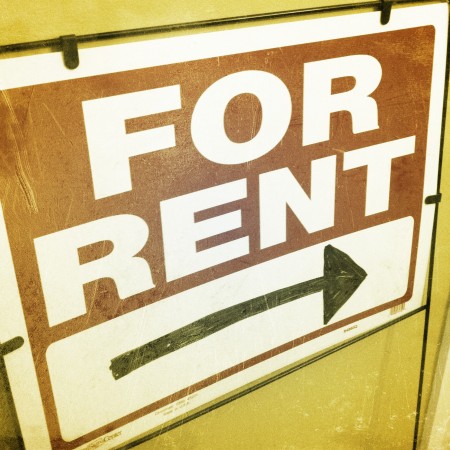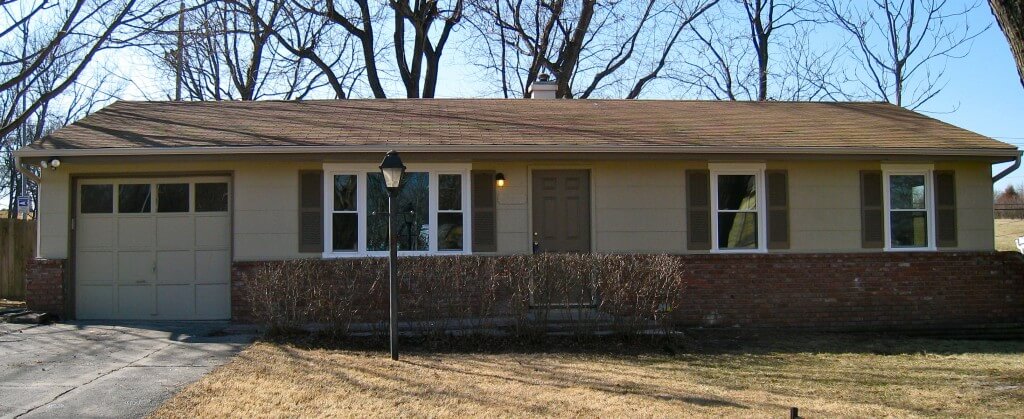 We purchased our first rental property in November 2010, and our second during the fall of 2011, which means that we’re coming up on our 3 year anniversary of being real estate investors.
We purchased our first rental property in November 2010, and our second during the fall of 2011, which means that we’re coming up on our 3 year anniversary of being real estate investors.
Umm, what? How that much time passed so quickly, I have no idea.
We have learned a ton during that time, and I could probably ramble on for ages about what we didn’t know and what we learned and oh my gosh what we’ll never do again. But what I thought I’d address today, because it’s something we have been talking a lot about lately, is buying and holding for the long term.
Before we bought both properties, we ran all the numbers and made absolute sure that we could cashflow positively. Immediately, we wanted our investment of time and money to pay off. We took loan payment, taxes, insurance, and property management fees into consideration, subtracted a large percentage for future repairs, along with utilities and lack of rent for when the home would inevitably be vacant. We then took all of that out of the average rent for comparable properties in the area. If it wasn’t a positive number, and if it wasn’t at least $200 or more, we didn’t even offer on the home. (Once again: we didn’t even offer on the property before calculating ALL of this.)
While there was a lot of focus on cashflow, we never forgot our second, and arguably most important, intention with these properties: long term value. The tenants pay us rent, then we pay the mortgage on the property with that money. Said another way: the tenants pay for our mortgage. So we have two investments that pay for themselves, and then when the note is paid off in 15 or 20 years (depending on the loan details), you have just about an infinite return. All rental income, minus taxes and insurance, is profit. A house renting for $950 that is currently cashflowing around $250, suddenly leaps to cashflowing $850 to $900 a month. That is college tuition money. That is retirement money. That, my friends, is value. Huge value.
So, the immediate focus was cashflow, the long term focus was infinite returns after the tenant essentially pays off the mortgage. During the last six months or so, we forgot about the latter.
 We were hit this past spring with a couple major repairs, then summertime presented us with two vacancies at the same time. The houses were quickly rented again, but still, it was frustrating. We have these properties up and running and it should be smooth sailing, right? Shouldn’t we just be able to sit back and enjoy the several hundred dollars per month per property adding up and up and up in our account? Sometimes, yes. Oftentimes, not so much.
We were hit this past spring with a couple major repairs, then summertime presented us with two vacancies at the same time. The houses were quickly rented again, but still, it was frustrating. We have these properties up and running and it should be smooth sailing, right? Shouldn’t we just be able to sit back and enjoy the several hundred dollars per month per property adding up and up and up in our account? Sometimes, yes. Oftentimes, not so much.
Those frustrations had us talking about possibly selling one or both properties. Wouldn’t it just be easier?, we asked each other. Surely there’s a less I’m-gonna-pull-my-hair-out way to invest, right? Let’s just dump ’em and be done with it.
We sought out advice from certain friends and family that have much more real estate investment experience than we do. We weighed our options. We watched our account just sit there. We pinged our (stupid, frustrating, but that’s another story for another time) property manager daily about the status of the marketing on the then-empty properties.
And then we started packing up our personal home and preparing for our move, and both properties signed leases with new tenants, and conversations about the rentals got shoved to the back burner.
We had a great conversation about investing with the realtor who helped us sell our personal home and purchase our new one (although my real estate license is still active, this mama was too distracted with other work and being a mama and a wifey to wade through those I barely-know-what-I’m-doing waters and represent us myself) while lounging in our new house during the inspection. She also has rental properties, and was telling us about a multi-decade investor that she recently was fortunate enough to have lunch with. His number one piece of advice? Hold. Hold hold hold hold hold. If the property isn’t costing you money to keep, and assuming everything else in your financial life is safe and smooth, hold. Most properties that aren’t primary residences are financed with 15 or 20 year mortgages. In the grand scheme of things, 15 years can pass by pretty darn fast.
It was exactly what we needed to hear.
We are approaching three years on one property and two years on the other. Both are financed with 20 year mortgages. We plan to shorten that timeline to at least 15 years with slight overpayments every month. 3 years. 15 years. We were strongly considering throwing away what could eventually be a huge lifestyle change for us when we’re in our mid to late 40’s just because we felt like we weren’t earning “enough” in the short term.
I can guarantee you that if we sold those houses and took the money and invested it elsewhere, we would be hard pressed to find something that in 15 or so years had the capacity to earn us upwards of $1600 a month. (Approximately $800, give or take, cashflow per property per month. And that’s conservative, as it doesn’t take into consideration rental increases due to inflation.) I’m not sure about 15 years from now, but today, if my math is correct, you would need $329,000 and a 6% interest rate to generate $1600 a month.
Uhh, yeah, we have a *little* less than $329,000 in cash invested in these two properties. Like, times a bajillion.
So we were reminded about our true intentions and reinvigorated to hold both properties. Because that’s what we originally planned to do. Immediate cashflow was the bonus. The icing on the cake. We wanted to make sure we would have it, which we did, and do, but it’s not the true goal.
Maintain properties that pay for themselves and before our kids are even beginning to think about college or post high school plans, the properties will be cash cows with huge returns.
Sign me up.
—
For more on about our real estate (mis)adventures, check these out:
5 Ways to Mess Up Your Real Estate Investment
Lessons Learned from Investment Property #2
On Flooded Rental Property Basements and Not Having to Deal With It
How are your rental properties going? Do you have plans to hold for the long term? Or are you more of a flipper or short term property owner?
I’m sure tons of you disagree with our philosophies about this, please weigh in!
Hugs,
AS
—
 I'm an author, marketer, and mommy who loves to read, write, and drink coffee. My husband and I live in suburban Kansas City with our two little girls. This site chronicles my world. Thanks for stopping by!
For more, check out my
I'm an author, marketer, and mommy who loves to read, write, and drink coffee. My husband and I live in suburban Kansas City with our two little girls. This site chronicles my world. Thanks for stopping by!
For more, check out my 
